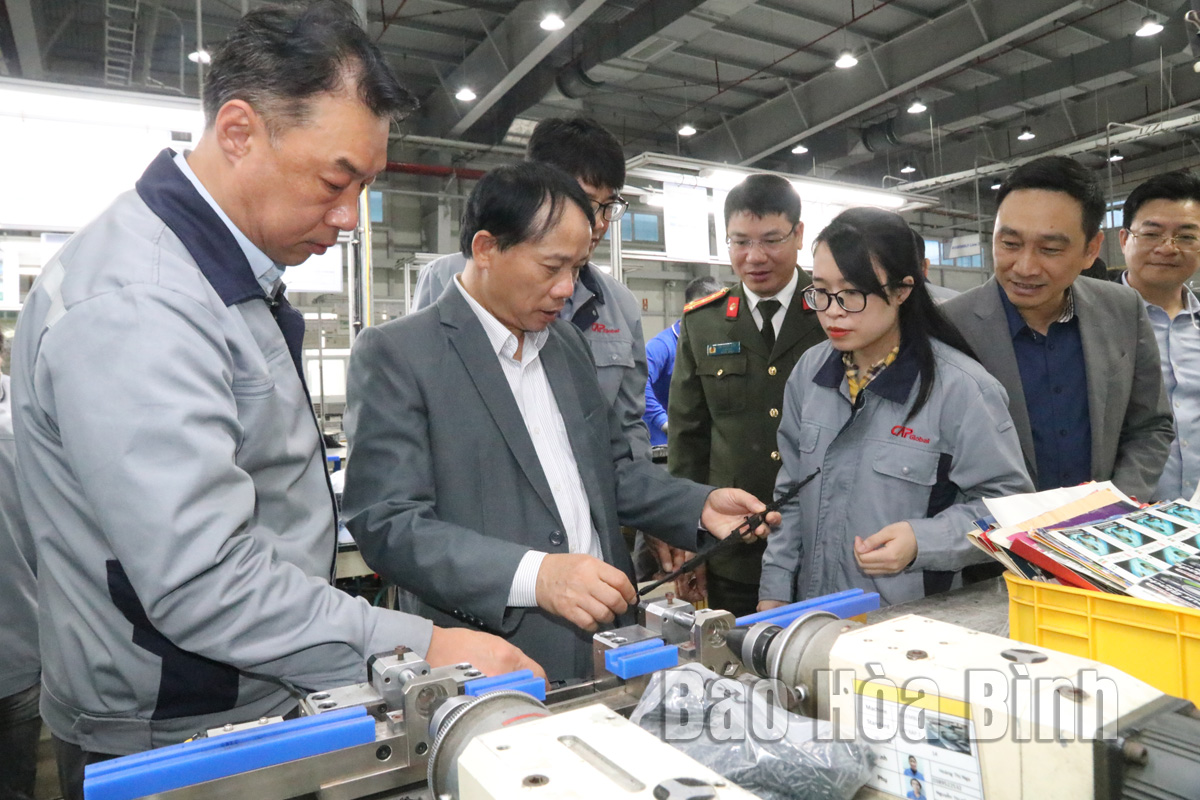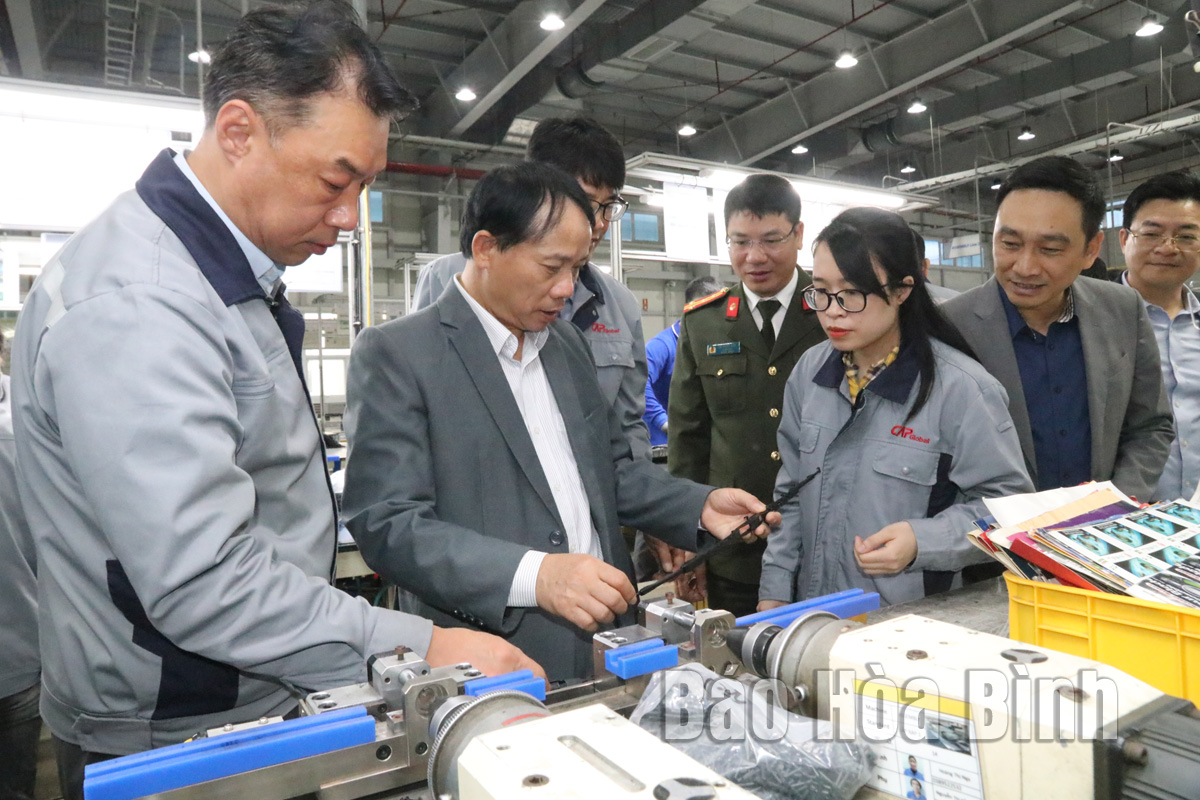
(HBO) – Amid complicated developments in the world and domestic economic situations, Hoa Binh province has been implementing many solutions, creating favourable conditions and gradually ensuring the sustainable development of the business community and entrepreneurs.

Bui
Van Khanh, Deputy Secretary of the Hoa Binh Provincial Party Committee,
Chairman of the provincial People's Committee and other leaders of agencies
visit CAP Global Co. Ltd. at Luong Son Industrial Park
There were 4,296 enterprises in the province by the end of last
year. Half of them (2,143 enterprises) were engaged in the industry and
construction sectors. Commercial and service firms (1,679) accounted for 39.1%
while agricultural, forestry and fishery enterprises (312) made up 7.3%. Those
of other sectors accounted for 3.8%. These businesses have contributed to
helping thousands of people have stable jobs. Most of the enterprises are small- and micro-sized enterprises. They contribute
over 2.3 trillion VND (97.3 million USD) to the State budget per year.
In addition to limitations related to the scientific and technical level,
enterprises also faced many hurdles as the consumption market has not improved
much. It is still difficult for them to implement some supporting mechanisms
and policies of the Government.
Slow administrative reform in the fields of investment, construction and land
has caused many businesses to miss their investment opportunities, while others
have faced difficulties relating to land compensation and site clearance.
A lot of leaders of enterprises haven’t undergone training relating to
financial and human resource management, marketing and business strategy
building. Some investors still lack financial capacity and do not have high
responsibility for the projects' implementation.
To facilitate enterprises’ performance, in the coming time, Hoa Binh will
continue to adopt solutions to improve the provincial competitiveness index,
focusing on attracting investment. It will promote the development of infrastructure, especially in the field of
transport as well as the establishment of new businesses with credit and tax
incentives.
Administrative procedure reform will be sped up along with the application of
information technology in management. Commercial banks will be asked to handle shortcomings, especially bad debts so
that businesses can access loans and generate jobs.
Hoa Binh will strengthen the management of basic construction investment,
accelerate the disbursement of investment capital for projects which are funded
by the State budget and national target programmes, and contribute to
increasing the sales of construction materials produced in the province./.
According to data from the Hoa Binh Provincial Party Committee, the industrial production index for the first six months of 2025 is estimated to have increased by 20% compared to the same period last year. This marks the highest year-on-year growth rate for this period since 2020.
In the first six months of 2025, Hoa Binh province’s export turnover was estimated at 1.145 billion USD, marking an 18.11% increase compared to the same period in 2024. Import turnover was estimated at $ 804 million, a 17.15% increase, which helped the province maintain a positive trade balance.
The lives of the ethnic minority farmers in Tan Lac district have gradually improved thanks to the new directions in agricultural production. This is a testament to the collective strength fostered through the professional associations and groups implemented by various levels of the district’s Farmers’ Union.
With the motto the "product quality comes first,” after nearly one year of establishment and operation, Muong village’s Clean Food Agricultural and Commercial Cooperative, located in Cau Hamlet, Hung Son Commune (Kim Boi district), has launched reputable, high-quality agricultural products to the market that are well-received by consumers. The products such as Muong village’s pork sausage, salt-cured chicken, and salt-cured pork hocks have gradually carved out a place in the market and they are on the path to obtaining the OCOP certification.
In the past, the phrase "bumper harvest, rock-bottom prices" was a familiar refrain for Vietnamese farmers engaged in fragmented, small-scale agriculture. But today, a new spirit is emerging across rural areas of Hoa Binh province - one of collaboration, organisation, and collective economic models that provide a stable foundation for production.
Maintaining growing area codes and packing facility codes in accordance with regulations is a mandatory requirement for agricultural products to be eligible for export. Recently, the Department of Agriculture and Environment of Hoa Binh province has intensified technical supervision of designated farming areas and packing facilities to safeguard the "green passport" that enables its products to access international markets.



